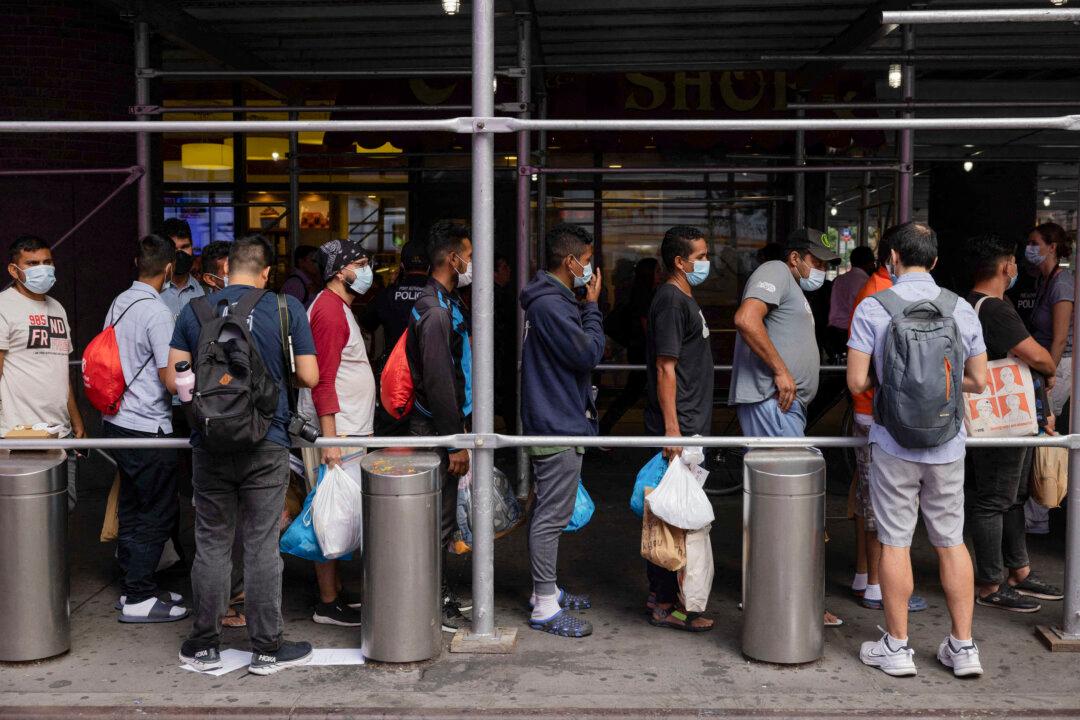The spiraling cost of caring for the surging influx of illegal immigrants and asylum seekers could affect the credit ratings of three large American cities, S&P Global Ratings said in a new report.
“State and local governments are shouldering the rapidly growing costs of assisting migrants and asylum seekers as their numbers increase in the U.S.,” the business intelligence company said in its report released on Tuesday. “If this issue remains significant enough for long enough, the increase in costs and social service requirements could affect states’ and local governments’ credit quality.”





